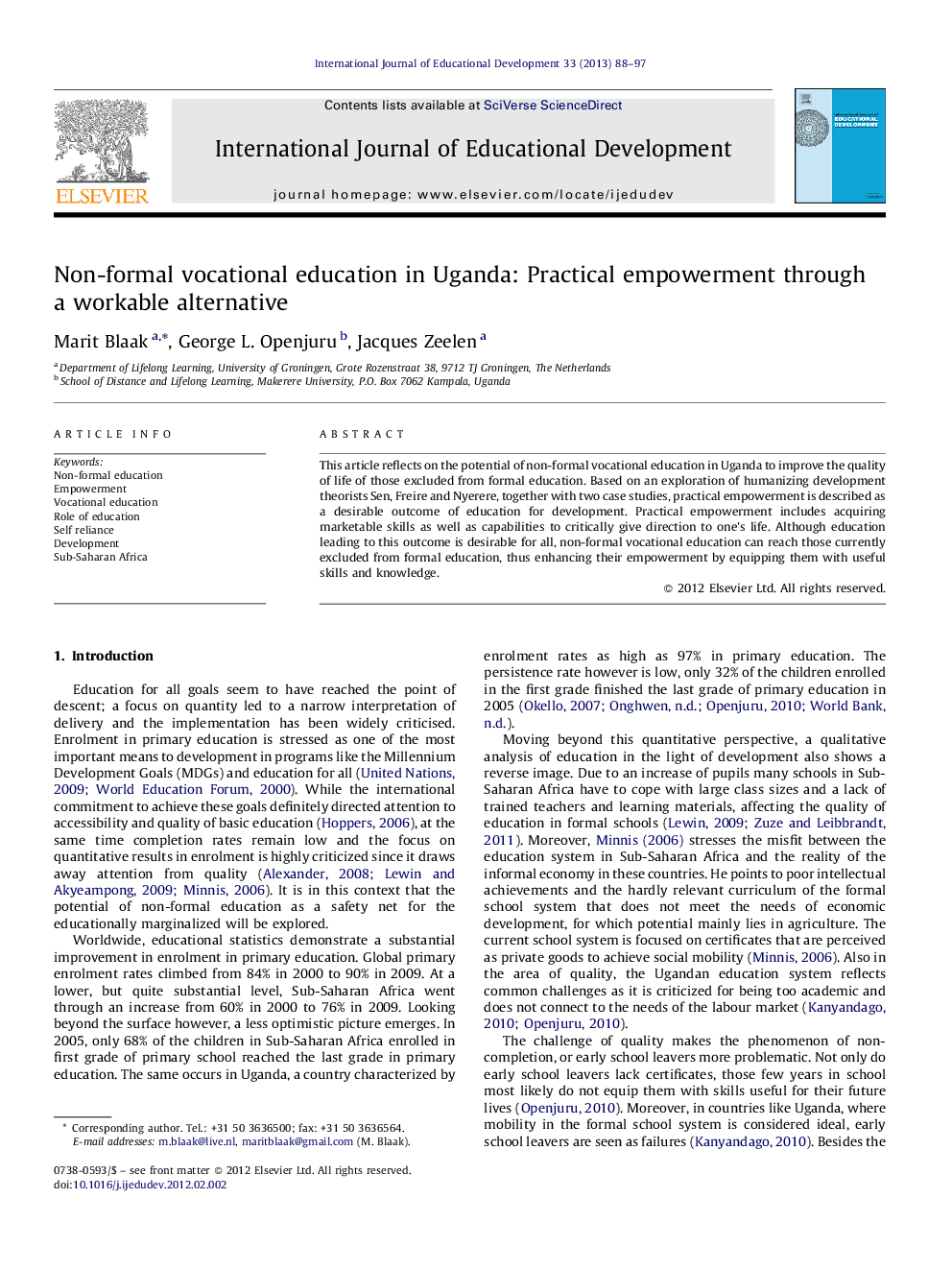| Article ID | Journal | Published Year | Pages | File Type |
|---|---|---|---|---|
| 356306 | International Journal of Educational Development | 2013 | 10 Pages |
This article reflects on the potential of non-formal vocational education in Uganda to improve the quality of life of those excluded from formal education. Based on an exploration of humanizing development theorists Sen, Freire and Nyerere, together with two case studies, practical empowerment is described as a desirable outcome of education for development. Practical empowerment includes acquiring marketable skills as well as capabilities to critically give direction to one's life. Although education leading to this outcome is desirable for all, non-formal vocational education can reach those currently excluded from formal education, thus enhancing their empowerment by equipping them with useful skills and knowledge.
► Formal education in Uganda struggles to offer quality education to all. ► We present cases of non-formal vocational education that directly support early school leavers. ► Multi-disciplinary content, connection to the labour market and practical exercise are vital. ► Besides practical money-making skills life skills and a sense of empowerment are important. ► Education for development should contribute to practical empowerment.
